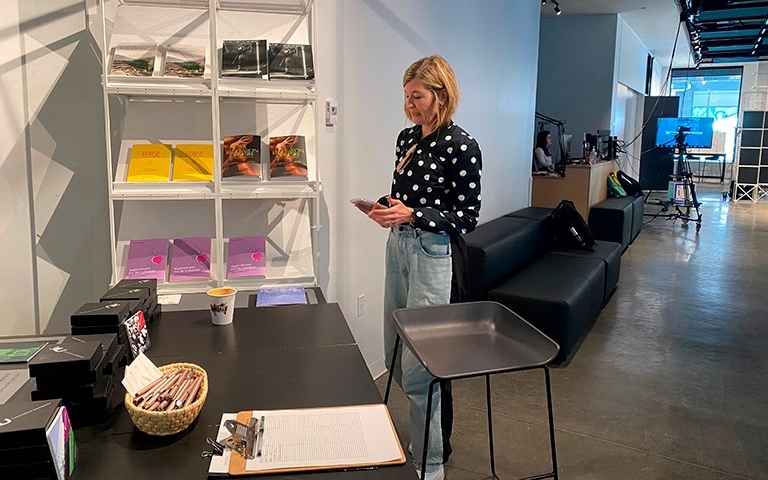Symposium raises awareness about the need for digital sobriety

Jasmin Cormier-Labrecque is a records management analyst for Concordia's Records Management & Archives.
For many years now, a digital revolution has transformed our ways of working with documents. Our professional, personal, and academic lives have all been altered by this shift from paper documents to digital files. The 2020 coronavirus pandemic and the rise of a hybrid work model only accelerated this change.
But, while convenient, digital files have a hidden ecological cost.
Documents stored in the cloud sit on servers that run continuously and are often powered by non-renewable energies. And we must not forget that digital devices, both those we use personally, and the ones used by data centres, are made with materials whose extraction causes significant pollution.
In light of this issue, a possible solution has emerged called “digital sobriety”.
Digital sobriety is an approach that aims to reduce our consumption of digital resources in order to lower our digital ecological footprint. To further discuss this burgeoning issue, Concordia’s Record Management and Archives (RMA) held a symposium on the topic as it relates to information management.

Hosted at 4TH Space on the April 17, the symposium gathered four speakers: Carole Marti and Christian Mailloux from Hydro-Québec; Tessa Walsh, formerly a Concordia preservation librarian and now a senior applications and tools engineer at Webrecorder, and Pedro Peres-Neto from the Department of Biology.
A common thread through the three presentations was the exponentially growing amount of information we create, receive and retain. So too were the structural and environmental challenges this ever-growing information creates.
Presenting digital sobriety as an answer to this problem, the speakers proposed to work upstream to reduce the volume of digital information we preserve.
In their presentation, Carole Marti and Christian Mailloux explained Hydro-Québec’s approach. The Crown corporation has chosen to counter the “explosion of data” by putting workflows in place that seek to reduce the accumulation of information.
The following talk, given by Tessa Walsh, centred on the ecological costs of the information and communication technology that form the backbone of cloud data centres.
After exposing the challenges with these technologies, Walsh offered various recommendations to assist in attaining sustainable digital information retention. Examples include rethinking digital permanence, being more open to using compression, ensuring a use case for all archived materials and more.
In his closing presentation, Peres-Neto offered insights into digital sobriety in a field central to the university’s mission: academic research. Noting that researchers are not shielded from the growth in production and retention of data, he proposed that research institutions adopt sustainable approaches through open scholarship.
Peres-Neto argued that open scholarship, which reduces research costs as well as its environmental footprint, allows for more efficient research.
In organizing this event, RMA sought to raise awareness about the need for digital sobriety and gather experts who could provide solutions to the issue of reducing our digital ecological footprint.
Thanks to the guest speakers, we are now equipped with different ideas and approaches that can help us include more digital sobriety in our personal, professional and academic lives.
The full recordings of the presentations, as well as the following Q&A, are available on the symposium event page.
Learn more about Concordia’s Digital Strategy.




